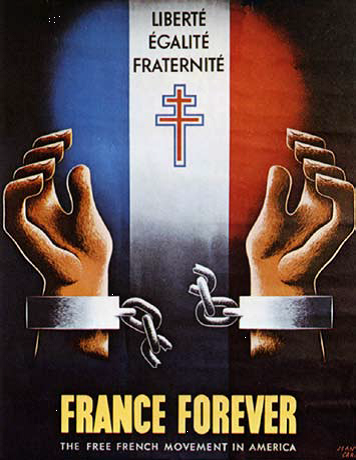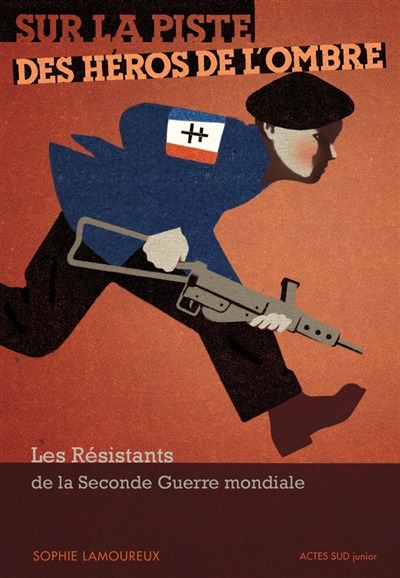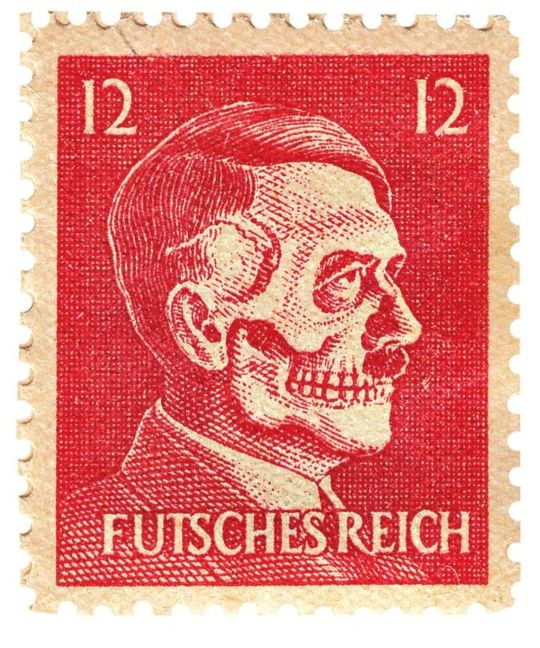#1939 1945 war
Text
Bitter Victory: The Battle for Sicily 1943 :: Carlo D'Este
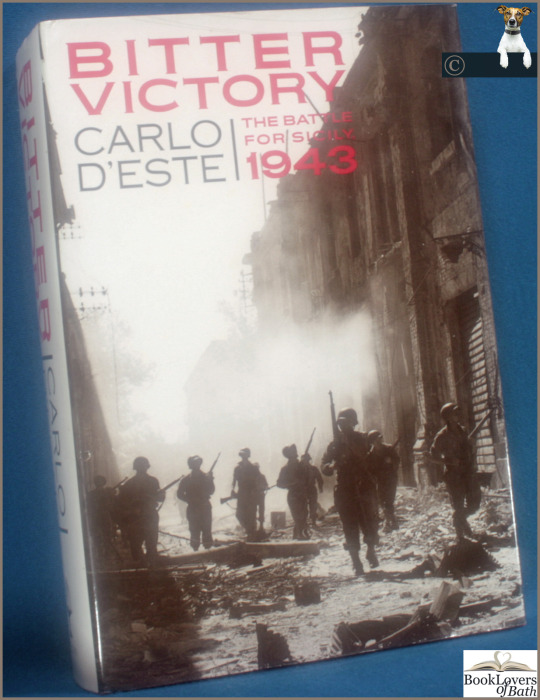
View On WordPress
#0-5252-4471-9#1939 1945 war#airborne#allied navy#axis forces#battle troina#biscari incidents#books by carlo d&039;este#eisenhower#first edition books#infantry divisions#kesselring#messina strait#military history#montgomery#naval forces#naval history#operation husky#primosole bridge#royal artillery gunners#royal navy#seafaring#sicilian war#war sicily#world war
3 notes
·
View notes
Text
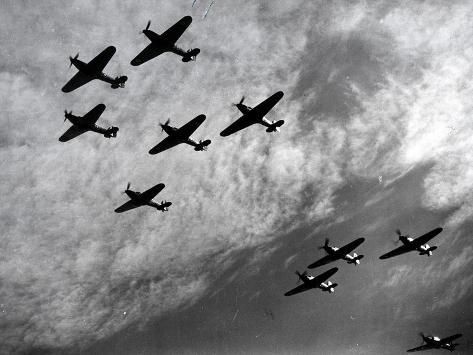





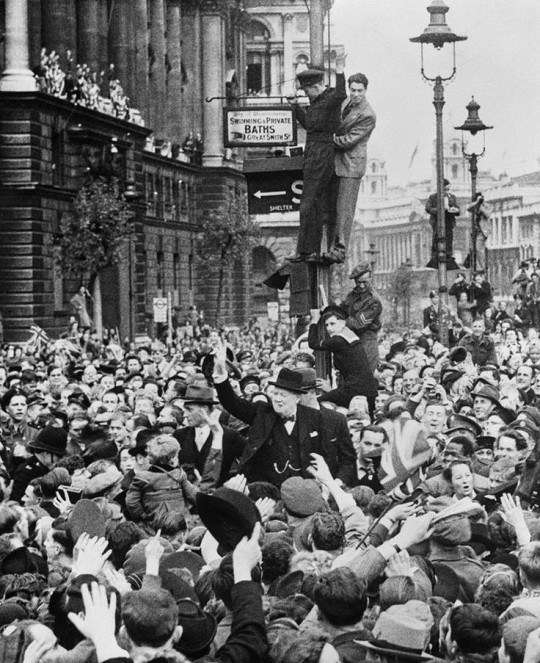

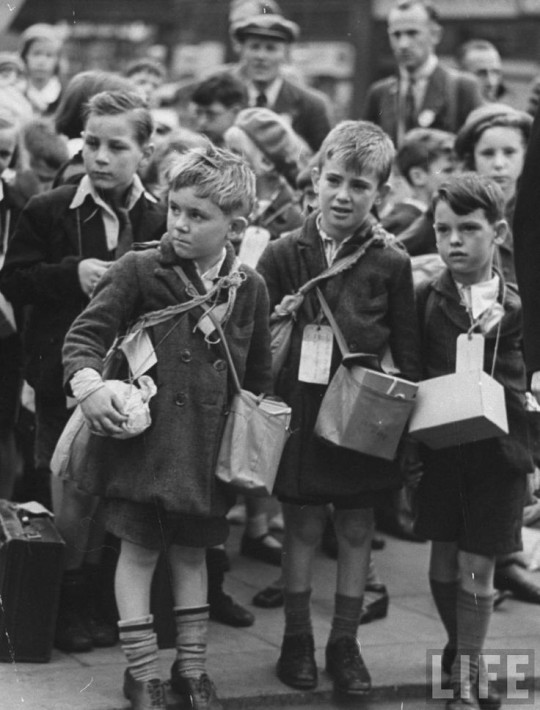
Lest We Forget
#Rememberence Sunday#ww2 history#ww2 england#ww2#soldiers#lest we forget#world war 2#world war ii#world war two#1939-1945#winston churchill
22 notes
·
View notes
Text
the curious thing is that from 1940-1944, in his diary, Fedor mentioned about his birthday. all except in 1943, which was also the death date of his brother.
Idk if he really couldn't bring himself to write abt the events, which was pretty understandable, or if he actually wrote it but the editor chose to omit it, which if that's the case, then I feel so mad.
I really want to know how was his interaction with his brother, his parents, and his biological daughter (which was also not mentioned in the diary). I wish I could see more of his sensitive side. poor boi has gone through a lot.
4 notes
·
View notes
Text
"In another life..."
*~*~*~*~*~*~*~*~*~*~*~*~*~*~*~*~*~*~*~*~*
29th April 1931.
The newlyweds Catherine Murray and William Howard just left the little church in the village where they tied the knot surrounded by their close family and friends. The bride was a part of an aristocratic Murray family but she still wanted to keep a low profile so instead of having a rather huge ceremony in London with King George V attending, she decided to have a small wedding in her favourite part of Wales and to wear a crown made of her favourite flowers instead of an expensive tiara from her family's vault.
William was looking at her with love as if she was the only woman to ever exist on the earth and that was something she considered her biggest achievement and joy in life.
"I cannot believe we did this at last" Giggled her as she looked at her now-husband. They'd been together for almost 10 years at that point, having met each other when they both were 18.
"It is real, Lady Murray-Howard" William whispered and kissed her on the lips, causing their guests to cheer.
"Promise me that we'll never be separated" she whispered as she took his hand in hers.
William smiled without replying to her and just squeezed her hand more as they walked to the car driving them to their house in North Wales where a small wedding reception was about to start.
*
1939.
Their life was almost idyllic, with two children and a dog living in Wales, until September 1939 when Germany declared the Second World War against Poland and therefore other countries as well.
"You know what they say.. about the war.. and you are the pilot, they may need assistance from planes.." said Catherine as they were coming back from a horse ride with their 7-year old daughter Mary.
"Yes indeed" William nodded and then he noticed his wife's fearful facial expression. He told Mary to go inside the house and then approached his wife "I will join the forces if that will be necessary. No need to elaborate on that, Catherine"
"Are you serious?" She scoffed, "We've got two children!"
"And our country may soon experience war. We both have seen what it means to live in a country at war, haven't we? My father died during the First World War in 1919 and if I have to, I will defend my country just like he did"
"So you want to die as well?" Catherine murmured and chuckled with sorrow "Just to defend your country and keep his memory?"
"Do not be ridiculous" he sighed as he approached her "I am aware that we have children. I will not be risking my life on the front line if that won't be necessary to protect our nation".
He kissed her on the forehead and held her hand, helping her to get off of her horse. Catherine hugged him and then they shared a kiss. Mary and her brother Patrick giggled as they ran towards their parents.
Back in London, the royal family lived their lives, attending official engagements while ordinary people on the streets, the same as Lady Howard and her husband were talking about the possibility of war coming to the United Kingdom.
*
1944.
Three words. 3 words she dreaded to hear for the last few years. "I am leaving". She didn't even have to ask "Where?". She knew.
The war. The front line. He was needed for the operation near Normandy where the Alliance forces were fighting with the Nazis. An easy way to die and leave her and their children for good. Seeing him saying "goodbye" to Patrick and Mary made her curse his abilities to fly in planes even if she always used to admire that in him.
William was about to travel to France by train. Although he told her to stay at home, Lady Howard traveled to the station with him. The media knew about this but they were unusually respective and didn't bother the couple at all.
"You never promised me that we'll never separate. Not during the wedding, nor later. You knew that it was coming" She whispered with pain in her voice as they were looking at each other right before he left.
"I don't know how to explain it, darling"
"No need for an explanation. Just take it" she handed him a dried-up white "Sweet William", her favourite flower, a part of her wedding's flower crown worn in April 1931.
One picture of her wiping tears upon leaving the train station was published by the press but Catherine's father The Earl of Pembroke forced them to erase it. Otherwise, both the photographer and the author of the article titled "LADY MURRAY'S FAREWELL TO HERO WILLIAM HOWARD AS HE GOES ON WAR" would have faced a law prosecution in London's court for invading her privacy.
As she was sitting in the car that drove her back to her small cottage, Lady Catherine Murray was looking at his picture but her thoughts were not about him but about someone else. A baby. She and William's third baby that she was carrying. Nobody knew besides her and her doctor. Her pregnancy got confirmed the same day when her husband decided to leave for France to "defend the country". Therefore, she had no time to tell him about their new "bundle of joy". By all these days leading to his departure, she has been wondering if telling that would perhaps keep William at home. Her heart was telling her to do exactly that but her mind was consumed by thoughts like: "That would make me a selfish person" .
Her sense won against her heart and now she was regretting it. A few hours later when she was in the bedroom, she touched her bump for the first time ever and whispered "He will return to us. We have to believe it".
Then, she pulled a picture of her husband out of her purse and began to pray. She used to do that often years ago when her then-boyfriend was attending a military academy to get his pilot licence and also when he was a rescue pilot back in the very beginning of the Second World War between 1939-1942. It finally began to sink into her brain. It was not just assistance in helping injured soldiers anymore. Now he was a soldier too. This thought was enough to make her cry after only one minute of her prayers.
*
Weeks passed and William Howard was getting used to his new routine of being a pilot during the war. Despite only two months of warfare, a majority of people serving in the same battalion whom he met on his first day in France were killed off. He knew he could not give up. Every single time when he doubted if all of this was worth its price, he was immediately 'brought back' to London's train station full of other soldiers saying their goodbyes to their families.
Every night, he was thinking of his children, and of his wife's teary eyes and had been falling asleep while inhaling the 'scent' of that dried-up white flower which she gave him.
"Catherine, I will come back to you. I promise". Those words seemed like a prayer for him. He often told himself when there was danger close to his battalion or in the air.
*
Lady Murray-Howard had to keep herself busy so as to not worry too much about the ongoing war. She has been attending many charity events founded to help the families of men who were fighting on the front line. She was attending almost all of them despite her tiredness. She wanted to show her unity with other waiting women even if that meant crying while hugging her husband's pillow after coming back home.
"Are you sure you want to go?" Her father asked. He was about to join an event like that with her for the first time.
"Obviously yes" Catherine weakly smiled as she was finishing putting on her make-up in front of the mirror "It is an amazing initiative, you will see it for yourself, papa"
"I have no doubts about that. It's just--.. Catherine, let me tell you the truth. Do you still believe he will return? It's been weeks and he can already be deceased! Nobody knows what is happening there!"
Lady Murray rolled her eyes but spoke up: "Let me tell you a story of a woman I met during a meeting in Leicester last week. Her husband Richard has been a soldier for four years now. Four years, not weeks. Last year there was news about Germans bombarding the battalion he was in. That woman I met went through a nightmare trying to get even a small piece of information, first about the whole incident, and then about her husband's condition. He suffered from brain injury but survived and even remembered his wife during their meeting in the hospital! It is truly a miracle and I know it is just one of many! You cannot think only of the worst-case scenarios possible".
"But this is the cruel reality of war, Kate. You must accept the fact that happy endings happen to just 1% of soldiers and their families" Michael, The Earl of Pembroke said.
Catherine closed her eyes and after taking a deep breath she said with confidence in her voice: "I'd rather believe in happy endings than sink into depression after imagining the death of my husband and other men!" .
Michael sighed. He was now facing the window as if he was afraid to tell his daughter the following words while looking at her face: "The moment you revealed you are engaged to a person from the middle class I had a feeling that it will only bring us problems. If William was a nobleman, he'd never go to war! He would stay at home and defend the country in a civilised manner, by donations to charities".
Catherine was speechless for a second. At last, she replied: "Oh, thank you for confirming how much you despise my husband. You needed almost 15 years and a war to admit it. Wow" she chuckled with sorrow and her eyes narrowed as she added: "You know what, papa? If William's manners are not good enough then let me tell you that yours aren't good either right now. These poor women do not need your appearance during this meeting this afternoon, nor do they need your 'donations'. I'll go there on my own! Stay with Mary and Patrick, if you have enough time for it" she scoffed and left the house with furiousness.
Five weeks passed since Lady Murray's last conversation with her father. She was attending yet another charity meeting in Cardiff when all of a sudden a man from her father's office came in. She had no slightest idea what it could mean but she listened to each word he said, getting paler within seconds.
"No.. It's impossible" she mumbled at last and fainted.
*
48 hours earlier.
He looked for 'one last time' at the white dried-up flower.
"I am so sorry, Kate," soldier William Howard murmured and closed his eyes.
*
Michael arrived at the hospital where his daughter had been taken after losing consciousness during her meeting. He already knew what happened to his son-in-law and considered it a blessing to Catherine. In his mind, The Earl of Pembroke already imagined his daughter's second wedding taking place. A wedding with a Welsh, noble, wealthy man whom she "deserved".
"Lady Murray-Howard is such an unlucky person" one nurse said to another standing in the hospital corridor.
"What are you two talking about?" He asked but without hearing their answer he entered Catherine's cabin. She kept her hands on her stomach while looking through the window.
"I've lost them both" she whispered through tears when she noticed Michael's gaze.
He had no idea about her pregnancy, therefore the fact he just realised struck him like lightning.
~~~
'Why is this bloody war so cruel to me? Why is the whole universe against me? Losing him would have been easier if I had our third baby close to myself, that thought would console me a little. C. Howard, 1944."
~~~
That was her first note weeks after getting to know about her husband's death and her miscarriage. Now, after a year since writing it out, she was looking through old notes, finding that particular one from 1944. As she was closing her notebook, her father watched her.
"Your life has been surrendered by anxiety since he left for France. It was quite predictable that you would lose your child sooner or later" he said
"Your grandchild," Catherine remarked and looked at her father with narrowed eyes "How can you be so heartless? I lost my husband and a baby and you say that it was 'predictable'? I am lost for words, papa".
"Think of the positivity that comes from this situation. Soon, you will finally find a man who will not be risking his life at war"
"You mean you will find him for me, right?' She scoffed. "It has been more than a year and so far there is no luck. I am so sorry for being such a disappointment for you but.." she stopped to take a breath and continued: "But I will always love William. Only him. You can even try to organise my meetings with as many potential future husbands of mine as you want. Just know that I will reject every single one of them." she emphasised each word "No matter how much money they will keep in their houses or how handsome they will be. It does not matter to me at all. Your attempts will all be pointless, as they have been until now".
"I am constantly giving you a choice, Catherine. If I was to threaten you, I'd force you to get married a month or perhaps even a day after we got to know about William's death. In my mind, there was a possibility of a wedding ceremony with the first nobleman I could think of. Be kind enough and notice how I was, and how I still am letting you get used to life without Mr Howard and get to know someone of your choice. Moreover, you are not held hostage here either so do not exaggerate this situation" he said louder.
"I'd rather be held hostage than have to think about 'someone new' in my life, papa" she murmured and closed her eyes "Leave my room, please".
"Lady Catherine Murray, soon you will see for yourself that living in the land of the dead takes you nowhere. The hurtful truth is that you are wasting the greatest years of your life now'.
"No. I am not Catherine Murray, papa. For almost 15 years my surname is Howard. It will always be Howard, not Murray nor any other name of an unknown, noble man" she hissed, yet she had confidence and determination in her voice "Papa, let yourself accept that in 1931, on the day when Lady Catherine Murray got married, she died and instead she became Mrs Catherine Howard.
Accept that it is my surname now and please let it be written on my gravestone in the future when I will, at last, join my husband".
She finished and looked at her father with 'sharp eyes' so he left to go to the garden where his grandchildren were waiting.
Catherine watched Patrick and Mary through the window for a few seconds. Then, she closed her eyes and burst into tears. After she calmed down a little, she looked at her reflection in the mirror, noticing a silver locket which had been hanging from her neck since the day William asked her to become his happily ever after.
There was no ring or other expensive jewellery for the proposal, just that locket which he found in his teenage years in an old box with his family belongings in the attic and which he then named "A piece of jewellery for my future wife".
A silver locket with a small blue stone and two pictures of them were both put there by William himself days before asking her to be his wife. Simple, yet meaningful.
She promised to wear it always. Now, though, she took it off and opened it for the first time. "I cannot keep it with me forever. I guess my father is right. I must leave the land of the dead. I spent too much of my time there. But no worries, my William" she weakly smiled, closing her eyes "I will not marry anyone else. Remember that I will always love you. Your Catherine Howard" she whispered and put the locket into a wooden drawer in their bedroom. As she was closing it with a key, she was not even trying to hold back her new tears.
*
France.
"Where am I?' A soldier asked one of the nurses working in a hospital minutes after waking up from a type of coma that lasted more than a year.
"You are in the hospital, Sir. Your battalion was attacked in 1944. A year ago. It is truly a miracle you are alive"
'So there's still an ongoing war."
"No. It ended two months ago, Sir. Today's date is July 20th, 1945"
"My son's birthday is in two days," William said and weakly smiled.
His doctor did a checkup but it seemed like he remembered every detail of his life The names of his children, his family members' birthdays, the date of his wedding and he remembered her. Catherine. His wife and someone who kept him in her memory all this time. He assumed that she married someone else meanwhile so he did not try to write a letter. "I do not want to ruin her life".
*
On the day of her son's birthday, Catherine couldn't help but think of her husband again. She still thought that he was deceased on that day in France back in 1944.
"Do you think he is looking over us?" Mary asked her mum as she stepped closer to Catherine and put her hand around her
"Yes, certainly," her mother replied and smiled as she looked up to the sky. She felt quite worried about her father now because he was late for Patrick's birthday party.
The Earl of Pembroke was attending an 'urgent meeting' in England, regarding the situation of his son-in-law. He knew everything all along and despite that, lied to Catherine and her kids. "The most convenient solution for this would be to keep it all a secret, and in case he would try to return to Wales and Lady Murray's life, then you must take steps to kill him" he commanded without a blink of an eye.
*
25th August 1945.
William was able to leave for home after the long hospital treatment. Home. He wondered where to go. His old house was destroyed in the war back in 1942 and the home where he lived with his wife and children was no longer his. The decision he made not to come back to Catherine's life was upheld. All of a sudden, he noticed a familiar silhouette of a man.
*
Catherine Howard tried to find the strength to keep going through her life, bring up her children and had hoped to find peace. She kept her promise of not marrying anyone else and cared for her two children and charities. Nothing of that had given her the liberty she desperately needed but she knew she could not leave. "He left and that caused us enough heartbreak. I cannot leave as well" she thought to herself over the years when been getting suicidal thoughts.
On his deathbed, her father who died due to cancer in 1950, had given her a letter without explaining it. Catherine opened it three days after his funeral.
~~~~~~~~~~~~~~~~~~~~~~~~~~~~~~~~~~~~~~
"My beloved daughter,
I apologise for not having enough courage to tell you about it before. Your husband survived. He survived the attack on his battalion six years ago. I am sincerely sorry for keeping it a secret. All along since 1921 when I met William, I thought you made the biggest mistake of your life. It turns out you were right and I was and will stay the worst possible father and grandfather ever.
William was the victim of war but also a victim of my eagerness to make your life better. I met him once after the war ended. It was the day him being discharged from the hospital. I had wanted to make sure he would not try to return to your life. Consequently, I told him that you met someone and got married for the second time. I mentioned a pregnancy that you miscarried and I blamed him for it. I was astonished when his reply to that was: "I assumed her second marriage a long time ago. Tell her I am sorry for making her life a misery and that she and our three children were my everything above all".
He was run over by a car driving at a high speed right as he walked away from the spot where we met. I am certain it was not an accident. I killed him. I wanted it for years and yet when it was announced to me by a doctor in France I was in a state of shock, almost sadness even. His gravestone is located close to the church where you two got married. Nobody knew it was his funeral, only me. You can find it. -8 / 1945- is all that's written on it..
Patrick, Mary and you are victims of my selfishness and greed. I understand completely if you won't be able to forgive me, Kate. But remember I loved you and cared for you and your children. I've made huge donations to all those charities you supported over the years. Last year, I also made several secret visits to a few of those, just like you always wanted me to. It is not enough and I am aware of that. I have not left money or any other sort of inheritance. You and your son are owners of our family estate, so you can keep it or sell it to get money from it as I once told you. But there is something that you would probably like to keep with yourself. Look inside this envelope. "Something that saved me during the war now is supposed to keep her safe" were his last words to me.
I, most likely, will not get your forgiveness so I can only hope for God's forgiveness.
Your father - Michael".
~~~~~~~~~~~~~~~~~~~~~~~~~~~~~~~~~~~~~~
Mrs Howard was shocked to bits after reading the letter. It dropped from her hand onto the floor while tears appeared in her eyes. "It is insane.." she murmured and broke down crying. While doing so, she looked inside the envelope as her father told her to. Almost yellow now, dried up flower "Sweet William". A 'talisman' she had given her husband back in May 1944, something that "saved him during the war" did not manage to do that for the second time because he returned it to her father, almost as if he did not want to live anymore.
Catherine Howard quickly wiped her tears when her son came to her room.
"Mum, is everything alright?" He asked as he approached her. She sniffed and with all her possible strength she hugged her son.
In the evening, that 'talisman' in an envelope was put right next to Catherine's locket with two pictures of her and William Howard. Her father's Welsh property was sold three months later and she and her children moved out of there as soon as it was possible. The Earl of Pembroke's daughter did not want to stay there as she considered it cursed because of him. She had taken all the significant things with her to another, much smaller house in Wales. She also ordered William's full name to be written on his gravestone.
Mrs Howard witnessed the wedding celebrations of both her & William's children, had become a grandmother three times and lived in her second home until her death at the age of 79. A white flower "Sweet William" was put inside her hand and a silver locket with two photographs was again put on her neck on the day of the funeral. The location of her grave was right next to one of her dear husband William. "Catherine Howard" was the name written on it, just like she wished years before.
*~*~*~*~*~*~*~*~*~*~*~*~*~*~*~*~*~*~*~*~*
2010.
Prince William and his fiancée Catherine Middleton entered their first real house in Anglesey, Wales.
As she stepped into one of the rooms, she felt something weird, as if the spirit of someone 'checked' what she was doing there. For some reason, it did not scare her but instead made her open an old drawer with a key.
"What is this?" She whispered as she took something into her hands and slowly opened.
It was an envelope with one petal of "Sweet William" and a piece of paper with words:
"Life is too short to love you in one, I promise to look for you in the next life".
She knew this quote was by William Shakespeare. It made her feel confused and amazed all at once. As she stared at the letters on paper and dried petals of "Sweet William", her future husband put his hand on her shoulder.
"What is this?" He asked
"I wanted to ask you the same question now" she startled and showed him the envelope and what was inside it. William was astonished as well but as he read the sentence by Shakespeare a few times and looked at the petal of one of his wife's favourite flowers, he looked at her and kissed her on the lips.
The air surrounding them had a familiar scent. The scent of flowers which years before were a part of Catherine Murray's flower crown on her wedding day to William Howard.
*~*~*~*~*~*~*~*~*~*~*~*~*~*~*~*~*~*~*~*~*
THE END.
#royal fanfiction#2023#in another life#world war ii#1939#1945#alternative universe#catherine murray-howard#william howard#2010#catherine middleton#prince william#prince of wales#princess of wales#fanfictions#stories#kate x william#william and catherine#fan fic writing#text post#tags
26 notes
·
View notes
Text
Something I only realized because I think someone pointed it out somewhere, if Professor Layton really took place in the 60s, like with history going as it did in our world, with Curious Village happening in 1960, this means that Hershel Layton himself would have served in World War 2
#no seriously do the math#if CV takes place in 1960 and Layton is 37#that means he was born in 1923#meanwhile ww2 took place in 1939-1945#from what I can gather in the uk men got drafted into the war at the minimum age of 18#Layton would have been 18 in 1941#meaning he would have spent the next 4 years of his life in the war#that is if I have things right#I don’t actually know much about how drafting works#or history at that time#it’s been a few years since I took a history class and I don’t think we got into that time period#or if we did it was just the beginnings of it and from the American perspective#but yeah#if this universe follows the events of the real world#Layton would likely have been a war veteran#and only a year after his best friend’s “death”#just gonna add even more trauma to his backstory#I suppose this also applies to other characters his age#but I just thought Layton was the most surprising option#professor layton#hershel layton#random stuff
15 notes
·
View notes
Video
NASM 9A12369 by Wonder Years Of Aviation
Via Flickr:
Photograph of seven Douglas C-47 Skytrain cargo aircraft in flight. Taken during training at Sedalia Army Air Field, Warrensburg, Missouri, by James J. Kirkpatrick, 1944.
#Aeronautics; Airplanes; World War#1939-1945#WWII#WWII in Color#WWII Color#War#World War II#World War II in color#WW2#USAAF#C-47#Douglas C-47#flickr
4 notes
·
View notes
Text
One of the most tragic pages in human history. Never again - in entire world and only in russia "можем повторить" (We can do it again!). Glory to Ukraine, glory to Ukrainian heroes, who fight russian fascism and trying to prevent history from repeating itself.
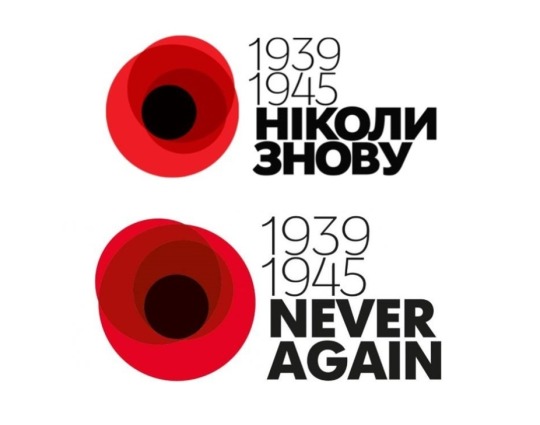
#never again#WWII#WW2#war in ukrain#history#ukraine#Russian invasion#1945#1939-1945#Stop war in Ukraine#Mariupol#Azov#Help Ukraine now
3 notes
·
View notes
Text
New book boosts RBL funds
New book boosts RBL funds
A new book tracing the history of life during World War Two in the parishes of Bisley and Chalford has helped raise funds for the 2022 Royal British Legion Poppy Appeal.
Researched and written over a three-year period by a collective of four local authors and historians, Camilla Boon, Roger Carnt, Heather Collins and Peter Drover, the 420-page book profiles those who lost their lives during WW2.…

View On WordPress
0 notes
Text
Racconti di guerra di mia mamma (1939 - 1945)
#1939-1945#carriarmati#dittatura#guerracivileitaliana#iloveitaly#italia#italo#monarchia#ondecorte#radiolondra#radiomiamiinternational#secondaguerramondiale#stopwar#sw#thesecondworldwar#thesecondworldwarinitaly#trinceea#voiceofitaly#war#wrmi
0 notes
Text

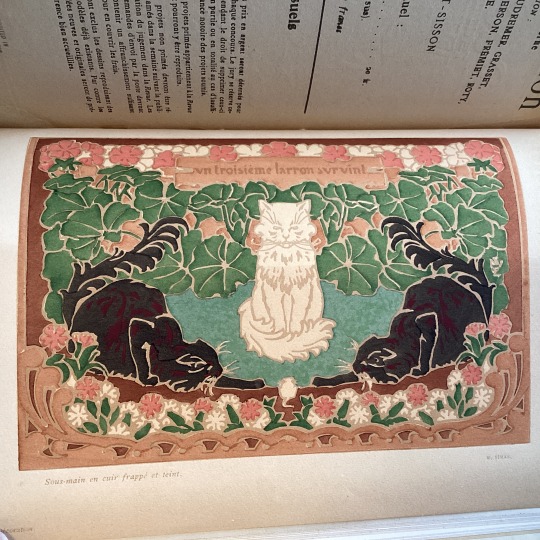
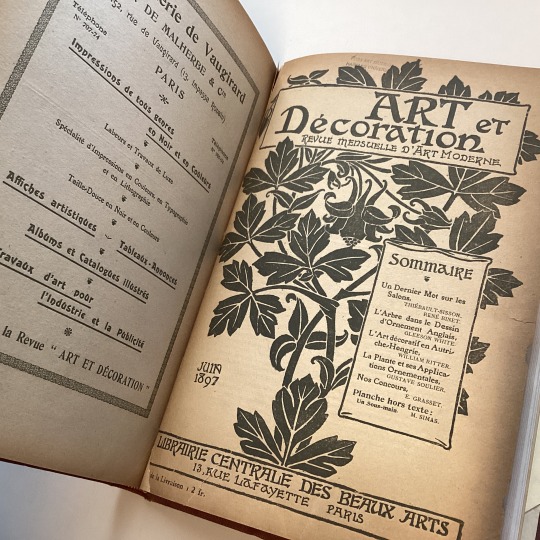
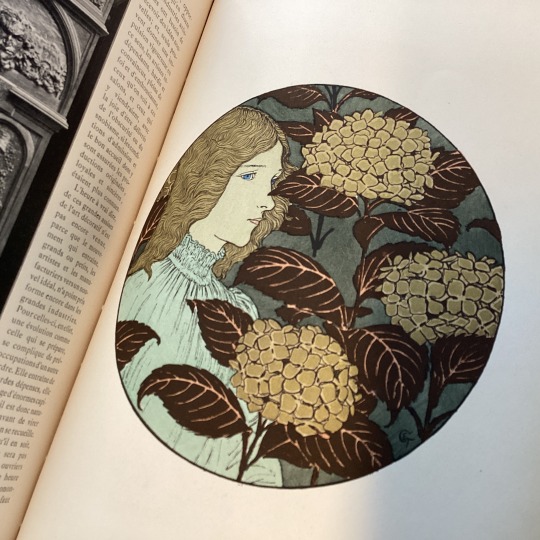
April is National Decoration Month.
Art et décoration was first published in 1897. The publication was suspended during the two World Wars from August 1914 – April 1919, and from 1939 through 1945. The Fine Arts Library has the original volumes if you want to see them. Request to view them in the Special Collections Study Room!
Art et décoration : revue mensuelle d'art moderne
Cover title: Art et décoration et l'architecture 1936-37
Paris : Librairie Centrale des Beaux Arts,
Frequency note: Monthly
French
HOLLIS number: 990062486850203941
#NationalDecorationMonth#Decoration#ArtEtDecoration#SpecialCollections#HarvardFineArtsLibrary#Fineartslibrary#Harvard#HarvardLibrary
237 notes
·
View notes
Text
Battle of the Bulge: Then and Now :: Jean-Paul Pallud
Battle of the Bulge: Then and Now :: Jean-Paul Pallud
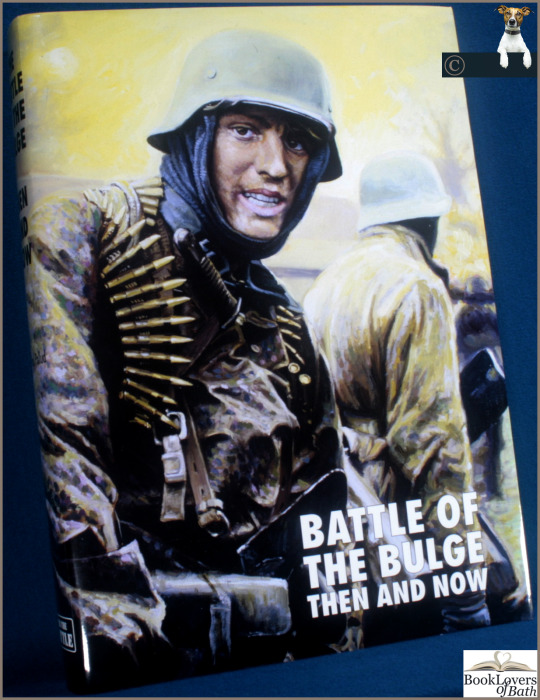
View On WordPress
#1939 1945 war#978-0-9009-1340-2#armeekorps#bastogne corridor#battle ardennes#books by jean-paul pallud#campaigns france#fhqu adlerhorst#german army#german militaryhistory#heeresgruppe#military history#operation stosser#panzer operations#panzer spearheads#ss panzer division
2 notes
·
View notes
Photo

On this day, 11 June 1943, Karl Gorath, a 20-year-old gay German nurse, was deported to the Auschwitz concentration camp. He was first arrested for homosexuality after being denounced by a jealous lover in 1939, and given a prison sentence. After his release he was sent to the Neuengamme concentration camp, where he was made to wear a pink triangle denoting LGBT+ prisoners. Working in the camp's health department, with some comrades he attempted to smuggle food to Russian prisoners, who were being starved to death. Their plan was discovered by the Nazis, who then sentenced Gorath to transportation to Auschwitz as a criminal and political prisoner, to be denoted with a red triangle. Despite contracting dysentery, he managed to survive the war and was released in 1945. But within a few months he was arrested again by West German authorities, who had kept the homophobic Nazi laws intact. His case was overseen by the same judge, who greeted him with the words "You are already here again!" and gave him the maximum sentence of five years. His lawyer requested that his time served in the concentration camps be counted as part of this, but his request was denied. After his release, because of his convictions he was unable to get a job for a decade. And when the time came to draw his pension, his years interned in concentration camps were deducted from his allowance, as were his unemployment payments. He died in 2003, having never received compensation for his treatment, unlike some other Holocaust survivors. He told his story in a 2000 documentary, "Paragraph 175", named after the relevant section of the penal code. This Pride month, check out our podcast series about LGBTQ history: https://workingclasshistory.com/tag/lgbtq/ https://www.facebook.com/photo.php?fbid=642169591289593&set=a.602588028581083&type=3
843 notes
·
View notes
Text
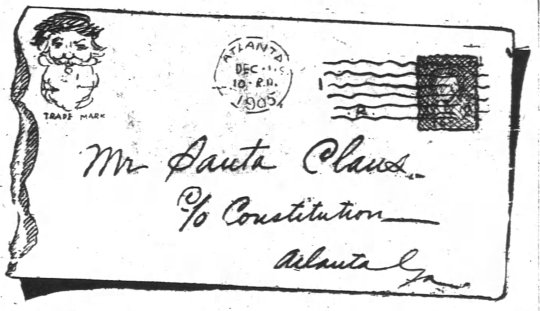
It’s Dear Santa time again!
Every year since 2010, I have spent the month of December posting children's Dear Santa letters.
Publishing letters to Santa in the newspaper first became widely popular in the late-1890s, though scattered newspapers did so as early as the mid-1880s. I believe this sudden explosion in popularity was at least partially the result of the famed "Yes, Virginia, there is a Santa Clause" editorial which was published in The New York Sun in September of 1897.
In large cities Dear Santa letters often acted as a method of getting needed clothing and supplies to impoverished children when parents might be ashamed to ask for charity. Subscribers to the newspaper could choose a child’s letter and provide the items they asked for. The most common requests were shoes and coats.
Sometimes newspapers offered prizes for the best letter (which I suspect often acted as another clandestine form of charity as the winners were often letters asking for basic clothing and school supplies.) Though these prizes could range from the ordinary (a sled or a doll) to the extravagant (a $20 gold piece or a live pony.)
Often local stores would enter children in a drawing if they mentioned the store in their letter - which on occasion would result in children hilariously name-dropping every store in town just in case.
Writing Dear Santa letters was also commonly an activity done at school, often following some rough form letter. These letters are fairly easy to spot as they often hype up what a good student the child was and include effusive praise for their teacher (who would likely see the letter before it was sent.)
So why have I spent hundreds of hours of my life over the last decade reading tens of thousands of these letters?
Children's voices are largely absent from the historical record.
Dear Santa letters offer an extremely rare opportunity to see history unfold through children's eyes - in their own (often creatively spelled) words.
1914′s “Remember the children in Belgium” becomes 1918′s “Please visit my brother in France”.
During the Great Depression the very common phrase “I know you’re poor this year too Santa” gives a glimpse into parents' attempts to explain to their children why they might not be getting as much this year.
1939′s “Be careful flying over Europe” becomes 1945′s “Since the war is over you’re making bb-guns again right?”
Requests for toy flying machines become aeroplanes become fighter jets become space shuttles.
Dolls and wagons become Shirley Temple merchandise become Erector Sets become Barbies and Star Wars action figures.
But through all these changes one thing remains clear throughout 130+ years of letters to Santa, despite the rapidly changing world around them - children have always been children.
I hope you enjoy these letters as much as I do! (All decade+ of posts are tagged “Dear Santa” if you’d like to see more than just this year’s selection.)
Hapy Holadays and Marry Crimes!
#as always - your tags comments and questions make the season so much brighter for me#and oh boy have I got some good ones for you this year#blogkeeping#dear santa#christmas#history#children#kids
351 notes
·
View notes
Note
(non-jew here) I just realized that Holocaust Remembrance Day is this Saturday and I'm not looking forward to the pro-hamas idiots trying to make it all about Palestine and attacking Jewish people for daring to mourn while they are "killing Palestinians" (ignoring that practically 99% of Jewish people have little to no control over Palestine but that doesn't matter to antisemites because because all Jews are responsible for what's going on in Gaza in their minds)
Hi Nonnie!
(I'm scheduling this to post on the aforementioned day)
Oh, trust me. The appropriation and inversion of the memory of the Holocaust, in order to use it as an attack against the right of Jews to self defence (which is basically the right of Jews to live) has to be one of the most vile things I've ever seen. It's a loss of shame and morals on a level I can't comprehend.
But in a way, it had to happen. Those who want a second genocide of the Jews HAVE to dismantle the biggest protection that Jews have today, which is the Jewish state. Now, Israel doesn't exist "thanks" to the Holocaust. It exists because Jews are native to Israel, and our religion and heritage have dictated never giving up on our homeland, and it exists "thanks" to the Nazis's failure during the Holocaust to eradicate every last single Jew. Israel exists in spite of the Holocaust. But the Holocaust DOES provide the ultimate proof of why the existence of a Jewish state, to shelter all Jews, is vital. So anyone who wants to destroy the Jewish state, must tackle that. And today's antisemites do that by applying "never again" to everyone other than the Jews. Never again is now. Never again means Jews have the right to defend themselves, and destroy an antisemitic, genocidal terrorist organization. Never again means supporting the war against Hamas' Nazi-compatible ideology.
TBH, this DARVO (Deny, Attack, Reverse Victim and Offender) inversion is reminiscent of Nazi rhetoric, too. In his Jan 30, 1939 speech, Hitler attacked any sympathy expressed for the plight of Jews, claimed that it's the Jews who are responsible for the upcoming war, and that despite that, Jews will be the ones to pay the price for it, through their extermination in Europe.
Applying "never again" to cases where no genocide is happening, while wielding this appropriation as a weapon to deprive Jews of their right to live, means it's happening again.
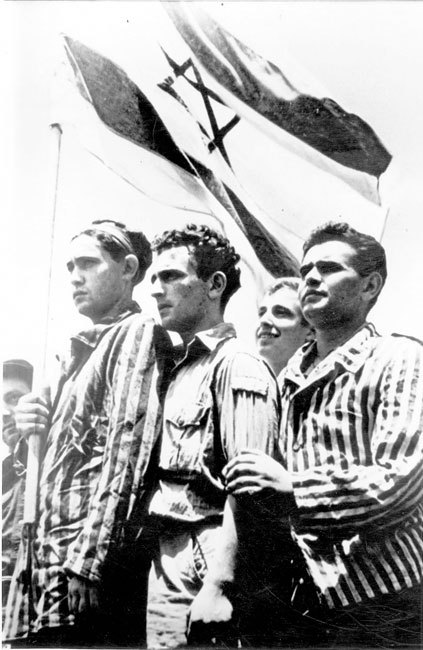
^ Holocaust survivors from Buchenwald on board of the Meteora in July 1945. As the Israeli port of Haifa came into view, they put on their prisoner pyjamas, held up this Israeli flag, and took this pic.
On International Holocaust Memorial Day 2024, I am going to remember the Holocaust survivors who were murdered on Oct 7. I am going to think of the Holocaust survivors who were kidnapped during this massacre. I am going to recall that so many survivors sought to build their families instead of questing for blood and vengeance, and then they had to watch their families attacked, abducted and butchered by Palestinian terrorists. I am going to honor the overwhelming majority of Holocaust survivors who were Zionist, the two thirds of survivors who chose to make their home in Israel after the end of WWII, those who had to fight British soldiers and Arab attackers in order to make that happen, and the survivors who made up roughly 65% of Israel's fighters in our War of Independence.
I am going to remind everyone, that there are survivors who experienced Oct 7 as a second Holocaust.

Never again IS NOW.
Sending big hugs! xoxox
(for all of my updates and ask replies regarding Israel, click here)
#israel#antisemitism#israeli#israel news#israel under attack#israel under fire#terrorism#anti terrorism#hamas#antisemitic#antisemites#jews#jew#judaism#jumblr#frumblr#jewish#israelunderattack#resources#holocaust
193 notes
·
View notes
Text
Captain: You know, Alison, during the-
Alison: If you say "during the war" one more time, I'm gonna smash up those tank dvds!
Captain: I was not going to say "during the war"!
Alison: Fine, then what were you gonna say?
Captain: *clears throat*
Captain: During the 1939-1945 conflict against Germany...
237 notes
·
View notes


